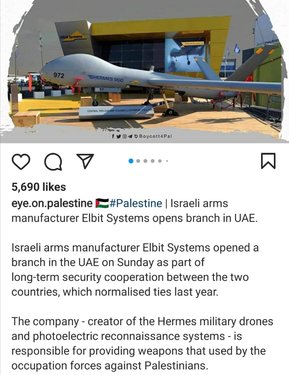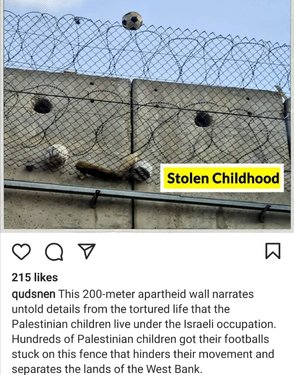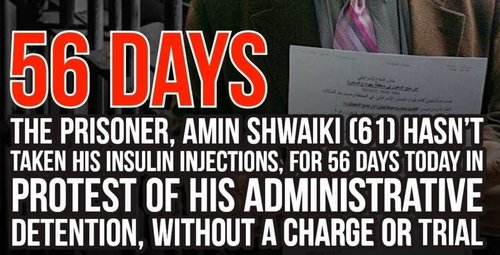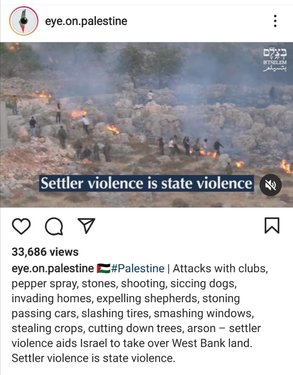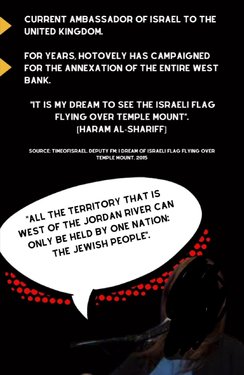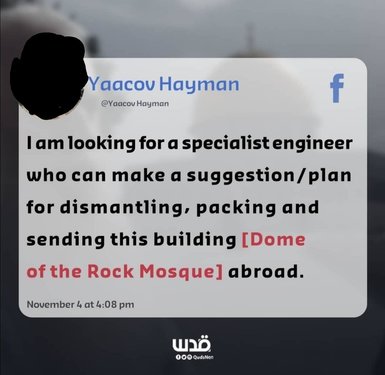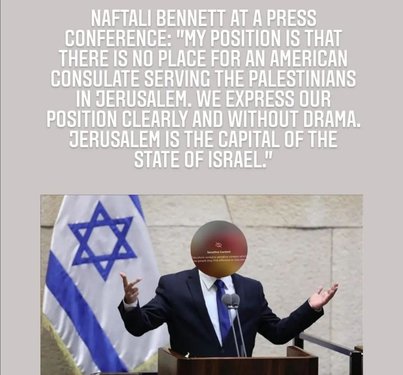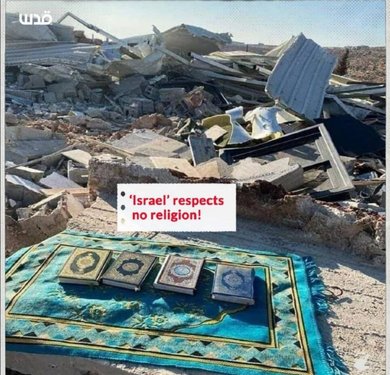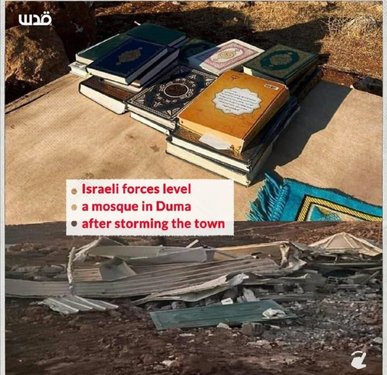-
Posts
8,461 -
Joined
-
Days Won
773
Content Type
Profiles
Forums
Events
Everything posted by ummtaalib
-
Question What are the rights of woman after marriage? If the husband calls the wife to bed, can she say no? Does the husband need the wife’s consent to have Intercourse? If there is no consent, and the wife doesn’t want to, and he forces himself over her, isn’t that rape? ANSWER In the name of Allah, Most Compassionate, Most Merciful, —– An Important Clarification In light of recent attempts by some to sensationalise my views by taking them out of their intended context and accusing me of “legitimising and vindicating rape within marriage,” I would like to categorically express that the answer below does not, in any way, call for rape within marriage. In fact, it clearly delegitimises rape stating: “… the above does not in any way mean that the husband may force himself over her for sexual gratification…” and “he [the husband] must restrain himself from forcing himself over her”. The answer below merely discusses the religious and Islamic obligation of a wife to fulfill the sexual needs of her husband and not use sex as a weapon against him. The ruling also applies to the husband, in that he has a religious obligation to fulfill the sexual needs of his wife and not deprive her of this right. Refusing sex without a genuine reason (or permission) and using it as a weapon against one’s husband or wife constitutes a sin in the eyes of God (i.e. in the next life), but does not legitimize rape or forced sex in this life. —– Sayyiduna Abu Huraira (Allah be pleased with him) narrates that the Messenger of Allah (Allah bless him & give him peace) said: “When a man calls his wife for sexual intimacy and she refuses him, thus he spends the night in anger, the angels curse her until morning.” (Sahih al-Bukhari & Sahih Muslim, See: Riyad al-Salihin, no. 281) Sayyiduna Talq ibn Ali (Allah be pleased with him) narrates that the Messenger of Allah (Allah bless him & give him peace) said: “When a man calls his wife for sexual intimacy, she should come, even if she is (busy) in the cooking area.” (Sunan al-Tirmidhi & Sunan al-Nasa’i) Sayyiduna Abu Huraira (Allah be pleased with him) narrates that the Messenger of Allah (Allah bless him & give him peace) said: “By the one in whose hands is my life, there is not a man who calls his wife for sexual intimacy and she refuses him except that Allah becomes angry with her until her husband is pleased with her.” (Sahih Muslim, No. 1436) The above and other narrations of the beloved of Allah (Allah bless him & give him peace) clearly signify the importance of the wife obeying her husband in his request for sexual intimacy. It will be a grave sin (in normal circumstances) for the wife to refuse her husband, and even more, if this leads the husband into the unlawful. Imam al-Nawawi (Allah have mercy on him) states in his commentary on the Hadith of Abu Huraira stated above: “This Hadith indicates that it is unlawful (haram) for the wife to refuse her husband for sexual intimacy without a valid reason. Menstruation will not be considered a valid reason, for the husband has a right to enjoy her from above the garment (on top of cloths).” (Sharh Sahih Muslim, P. 1084) However, the above does not in any way mean that the husband may force himself over her for sexual gratification. The Hadith mentions “the husband spends the night in anger or being displeased” which clearly shows that he must restrain himself from forcing himself over her. Had this not been the case, the Messenger of Allah (Allah bless him & give him peace) would have advised the husband to gain his right in a forceful manner. Similarly, it should be remembered here that, the wife must obey her husband in his request for sexual intimacy unless she has a valid reason. She must obey his as long as she does not have to forego her own rights. As such, if the wife is ill, fears physical harm or she is emotionally drained, etc; she will not be obliged to comply with her husband’s request for sexual intimacy. Rather, the husband would be required to show her consideration. Allah Most High says: “On no soul does Allah place a burden greater than it can bear.” (Surah al-Baqarah, 286) Many times it is observed that the husband demands from his wife to fulfil his sexual needs no matter what state she is in, and uses the above quoted Hadiths to impose himself over her. If the wife is not in a state to engage in sexual activities and has a genuine and valid reason, and the husband forces her, then he will be sinful. Muslim husbands should realize that their wives are also humans and not some type of machines that can be switched on whenever they desire! Finally, these matters should be resolved with mutual understanding, regard for one another, love, gentleness and putting one’s spouse before one’s self. The Messenger of Allah (Allah bless him & give him peace) has reported to have said: “None of you can be a true believer until he loves for his brother/sister what he loves for himself.” The importance of this is even greater in a marital relationship. And Allah Knows Best [Mufti] Muhammad ibn Adam Darul Iftaa Leicester , UK Source
-
Q: Is it necessary for the husband to give his wife an allowance? A: Shariah commands that the husband provide his wife with Nafaqah. Nafaqah entails providing the wife with shelter, food, clothing and the necessities of life in accordance to their financial status and position. Apart from this, it is recommended, though not an obligation, for the husband to also give his wife a monthly allowance to purchase whatever she requires for herself. And Allah Ta'ala (الله تعالى) knows best. أَسكِنوهُنَّ مِن حَيثُ سَكَنتُم مِن وُجدِكُم وَلا تُضارّوهُنَّ لِتُضَيِّقوا عَلَيهِنَّ وَإِن كُنَّ أُولـٰتِ حَملٍ فَأَنفِقوا عَلَيهِنَّ حَتّىٰ يَضَعنَ حَملَهُنَّ فَإِن أَرضَعنَ لَكُم فَـٔاتوهُنَّ أُجورَهُنَّ وَأتَمِروا بَينَكُم بِمَعروفٍ وَإِن تَعاسَرتُم فَسَتُرضِعُ لَهُ أُخرىٰ ﴿٦﴾ لِيُنفِق ذو سَعَةٍ مِن سَعَتِهِ وَمَن قُدِرَ عَلَيهِ رِزقُهُ فَليُنفِق مِمّا ءاتىٰهُ اللَّـهُ لا يُكَلِّفُ اللَّـهُ نَفسًا إِلّا ما ءاتىٰها سَيَجعَلُ اللَّـهُ بَعدَ عُسرٍ يُسرًا ﴿الطلاق: ٧﴾ عن عائشة أن هند بنت عتبة قالت يا رسول الله إن أبا سفيان رجل شحيح وليس يعطيني ما يكفيني وولدي إلا ما أخذت منه وهو لا يعلم فقال خذي ما يكفيك وولدك بالمعروف (صحيح البخاري رقم 5049) باب النفقة هي لغة ما ينفقه الإنسان على عياله وشرعا ( هي الطعام والكسوة والسكنى ) (الدر المختار 3/571-572) ( فتجب للزوجة ... على زوجها ... بقدر حالهما ) به يفتى قال الشامي: قوله ( به يفتى ) ... قال في البحر واتفقوا على وجوب نفقة الموسرين إذا كانا موسرين وعلى نفقة المعسرين إذا كانا معسرين وإنما الاختلاف فيما إذا كان أحدهما موسرا والآخر معسرا فعلى ظاهر الرواية الاعتبار لحال الرجل فإن كان موسرا وهي معسرة فعليه نفقة الموسرين وفي عكسه نفقة المعسرين وأما على المفتى به فتجب نفقة الوسط في المسألتين وهو فوق نفقة المعسرة ودون نفقة الموسرة (رد المحتار 3/572-575) Answered by: Mufti Zakaria Makada Checked & Approved: Mufti Ebrahim Salejee (Isipingo Beach)
-
Naftali Bennett Hamas is a radical Islamic group that targets innocent Israelis & seeks Israel's destruction. I welcome the UK’s intention to declare Hamas a terrorist organization in its entirety — because that’s exactly what it is. Thank you to my friend @BorisJohnson for your leadership.
-
Hamas reacts with fury as Britain moves to ban group UK Home Secretary Priti Patel is pushing to ban the Palestinian movement under the Terrorism Act. Hamas has condemned a move by Britain towards banning the group as a terrorist organisation which could see supporters of the Palestinian movement face up to 14 years in prison. Home Secretary Priti Patel, who will push for the ban in Parliament next week, argued on Friday that it was not possible to distinguish between Hamas’s political and military wings. She called Hamas “fundamentally and rabidly anti-Semitic”, adding the proscription was required to protect the Jewish community. Hamas responded in a statement, saying: “Instead of apologising and correcting its historical sin against the Palestinian people … [Britain] supports the aggressors at the expense of the victims.” That comment referred to the Balfour Declaration and British Mandate, which it said handed “Palestinian lands to the Zionist movement”. “Resisting occupation, by all available means, including armed resistance, is a right guaranteed by international law to people under occupation,” added the statement. The group called on its supporters to condemn the UK’s move, as it described Israel’s occupation of Palestinian lands, forcible displacement of Palestinians, the demolition of their homes, and the siege of more than two million people in Gaza Strip, as “terrorism”. Patel, who is on a trip to Washington, DC, said her move was “based upon a wide range of intelligence, information and also links to terrorism”. Continue reading at al-jazeera
-
Tension reported in the old city of Jerusalem today Witnesses are talking about an armed clashes with occupation forces. Number of Israeli soldiers and settlers were injured in shooting that happened in the old city of Jerusalem.
-
Palestinian land turned onto a garabage dump A silent weapon used by the Israeli Occupation to keep a tight grip on the remaining lands of the West Bank... A weapon, that brings diseases and slow death upon Palestinians, toxifies the environment, and harms animals. About the Occupation’s disposal of its waste in the West Bank…
-
Wrong body delivered to family! The Isra-helli occupation forces postponed the release of the body Amjad Abu Sultan (14) which was supposed to be today at an Israeli military checkpoint in the West of Bethlehem city. He was killed by the occupation forces near Bethlehem on 14.10.2021,The family of the child discovered that the body wasn't the body of their son Amjad. Eye On Palestine (@eye.on.palestine) • Instagram photos and videos
-
A book, Perfect Madness by Judith Warner, published by Riverhead Books, tells us that during her research, Warner discovered that: “Seventy percent of American moms say they find motherhood today ‘incredibly stressful.’” “Thirty percent of mothers of young children reportedly suffer from depression.” In the lands where all that glitters is somehow perceived to be gold and therefore desirable, women are discovering that playing roles that were not ordained for them by God is not all it is cracked up to be. Women in the West, who have long been battling both themselves and the natural order to be “superwomen,” are finding that banging their heads on the glass ceiling is giving them more than a headache. They are finding themselves on a merry-go-round that will not stop. Their makeup and their hair must be perfect; their size must be unrealistically thin; their children must be perfect, talented, and high achievers; their houses must be spotless; and all this must be achieved in the stolen hours between working and sleeping. This is more than just struggling against the glass ceiling in pursuit of career goals: It is banging your head against a wall on a relentless and ongoing basis. As Judith Warner states, “I have seen so many mothers banging their heads against a wall: treating their pain – the chronic headache of their lives – with sleeping pills, antidepressants and anxiety meds, and a more and more potent, more and more vicious self-and-other-attacking form of anxious perfectionism.” The chronic headache of their lives …! Is that a life? This is mere survival in a life of stress and loneliness. The superwoman goal is unachievable not because women are incapable, but because they fail to see that fulfilling natural and predestined roles is undoubtedly the real super achievement. Playing mother, wife, and career woman all at the same time is not an enviable position, and, except in cases of necessity, the woman’s role as caregiver and homemaker should take precedence over career and outside activities. Islam defines women as superwomen – but with a different meaning. Islam recognizes that the role of wife and mother is of paramount importance. Islam defines marriage as half of the religion. Islam clearly states that Heaven lies at the feet of mothers. Islam goes much further than just recognition; it clearly defines the roles that women play and states rights and obligations with clarity and common sense. The role of a mother in bringing up children is greater than that of a father. She is responsible for their emotional, behavioral, and intellectual development. She is responsible for instilling the love of Islam in them, especially in their early formative years. When a woman understands the teachings of Islam and her own role in life, she understands her complete responsibility for the upbringing of her children, as is referred to in the Quran: “O you who believe! Save yourselves and your families from a Fire whose fuel is Men and Stones.” (Quran 66:6) More than 40 years ago, Muslim women who were secure in their roles and their lives could see the damage being caused by a Western lifestyle. In 1962 after observing her Western sisters, Salma Al-Haffar said in the Damacus newspaper Al-Ayyam,: “It is truly a shame that women lose the most precious thing that nature has given them, that is, their femininity, and then their happiness, because the constant cycle of exhausting work has caused them to lose the small paradise which is the natural refuge of women and men alike, a refuge that can only flourish under the care of a mother who stays at home. The happiness of individuals and society as a whole is to be found at home, in the lap of the family; the family is the source of inspiration, goodness and creativity.” Nowadays, a woman is often forced to make choices that are not easy. Often, she feels that she must work to help financially support the family. Often, she is the family’s sole breadwinner. However, before we focus blame on the stresses and demands of society today and blame them for the destruction of family values and the pain and anguish of failing supermoms, let’s recall how we have unrealistically idealized women’s lives in the 21st century. On the other hand, the lives of Muslim women must be guided only by the precepts of the Quran and the Sunnah. We must not be fooled by slogans such as “times have changed.” The Prophet Muhammad, may the mercy and blessings of God be upon him, was sent with a message for all mankind, in all times and in all places. The guidelines sent down to us by our Creator, God Almighty, are perfect and cover all situations. God made it clear that a woman’s first responsibility is to her Creator, then to her husband, and then to her home. There is nothing in Islam that prevents a woman from continuing her education, from working or from pursuing outside activities. Nothing, that is, except the well-being of her family. The importance that Islam places upon marriage is clear. “And among His signs is this that He has created for you mates from among yourselves, that you may dwell in tranquillity with them; and He has put love and mercy between you. Verily in that are signs for those who reflect.” (Quran 30:21) The usual by-product of marriage is children, and these children are the future of society. What greater role can there be than that of mother? How can the women who fulfill this role be regarded as anything but superwomen? Women who understand their religion are secure in the fact that God Most High knows what is best for His slaves. Women must be vigilant, for our society’s future rests in their hands, and being burnt out supermoms achieves nothing but stress and anxiety. Unfortunately, many non-Western women today are blindly rushing to follow a well-worn road. It is a road of consumerism and excess, and it leads nowhere. That nowhere has no substance; it is merely a feeling of emptiness and loss. It is better not to follow such women into oblivion; let us learn from their mistakes. As is evident from the research found in Perfect Madness, the Western lifestyle being clutched to so desperately is not a cure for what ails us. The motherhood that needs to be sought is compatible with God Most High. That is it, nothing more. If we achieve this, we are the real superwomen; the true supermoms. By Sister Aisha S jamiat.org
-
- supermoms
- superwoman
-
(and 1 more)
Tagged with:
-

Atrocities in Indian Occupied Kashmir
ummtaalib replied to ColonelHardstone's topic in General Islamic Discussions
Yaa Allah! Send help to the Ummah!- 1 reply
-
- 1
-

-
-
-
Question: Please advise a few ahadith on the virtues and admonitions of what to do immediately after fardh salaah. Answer: In the Name of Allah, the Most Gracious, the Most Merciful. As-salāmu ‘alaykum wa-rahmatullāhi wa-barakātuh. Salah is one of the fundamental pillars of Islam. It is a means of connecting directly with Allah Ta’ala. It is a state of spiritual connection, revival and revolution for an individual. The most effective Salah is the one closest to the Sunnah. Rasulullah (Sallallahu Alaihi Wasallam) advised us how to perform Salah. He even advised us how to conduct ourselves immediately after Salah. As human beings, we are weak. We cannot fulfil the rights of Allah Ta’ala in Salah. However, despite our weakness and shortcomings, Allah Ta’ala is Al-Shakoor. He appreciates the broken efforts of His sincere servants. Therefore, the time after Salah should be dedicated to Istighfaar and seeking forgiveness from Allah Ta’ala for not fulfilling the Haqq of Allah Ta’ala. The time after Salah is a time to focus on Allah Ta’ala being Al-Shakoor. After making Istighfaar and expressing one’s weakness and humbleness before Allah Ta’ala, praise Allah Ta’ala and make Dua to Allah Ta’ala. Present your needs of Aakhirah and worldly needs to Allah Ta’ala after Salah. See the following Ahadith: 1. Istighfaar after Salah: ثَوْبَانَ، مَوْلَى رَسُولِ اللَّهِ صلى الله عليه وسلم يُحَدِّثُ أَنَّ رَسُولَ اللَّهِ صلى الله عليه وسلم كَانَ إِذَا انْصَرَفَ مِنْ صَلاَتِهِ اسْتَغْفَرَ ثَلاَثًا عن (صحيح مسلم: 591) Translation: Thauban (Radhiyallahu Anhu) the freed slave of the Messenger of Allah (Sallallahu Alaihi Wasallam) reported: When the Messenger of Allah (Sallallahu Alaihi Wasallam) finished his prayer, He recited Istighfaar three times. (Sahih Muslim: 591) 2. Praise Allah Ta’ala after Salah: عَنْ عَائِشَةَ، رضى الله عنها أَنَّ النَّبِيَّ صلى الله عليه وسلم كَانَ إِذَا سَلَّمَ قَالَ " اللَّهُمَّ أَنْتَ السَّلاَمُ وَمِنْكَ السَّلاَمُ تَبَارَكْتَ يَا ذَا الْجَلاَلِ وَالإِكْرَامِ" (سنن ابي داود: 1512) Translation: Aishah (Radhiyallahu Anha) said: When the Prophet (Sallallahu Alaihi Wasallam finished his prayer, he used to say: "O Allah, You are As-Salam, and from you is As-Salam. You are blessed, Oh One of Magnificence and Generosity.” (Sunan Abu Dawud: 1512) 3. Du’a after Salah: عَنْ أَبِي أُمَامَةَ، قَالَ قِيلَ يَا رَسُولَ اللَّهِ أَىُّ الدُّعَاءِ أَسْمَعُ قَالَ " جَوْفُ اللَّيْلِ الآخِرُ وَدُبُرَ الصَّلَوَاتِ الْمَكْتُوبَاتِ " (جامع الترمذي: 3499) Translation: Abu Umamah (Radhiyallahu Anhu) narrated: “It was said: ‘O Messenger of Allah (Sallallahu Alaihi Wasallam), which supplication is most likely to be listened to?’ He said: ‘(During) the last part of the night, and after of the obligatory prayers.” (Jami Al-Tirmidhi: 3499) Thereafter, it is advisable for one read any of the following Adhkaar mentioned in the Ahadith: 1. Tasbeeh: Subhanallah, Alhamdulillah, Allahu Akbar thirty-three times each: عَنْ أَبِي هُرَيْرَةَ، عَنْ رَسُولِ اللَّهِ صلى الله عليه وسلم " مَنْ سَبَّحَ اللَّهَ فِي دُبُرِ كُلِّ صَلاَةٍ ثَلاَثًا وَثَلاَثِينَ وَحَمِدَ اللَّهَ ثَلاَثًا وَثَلاَثِينَ وَكَبَّرَ اللَّهَ ثَلاَثًا وَثَلاَثِينَ فَتِلْكَ تِسْعَةٌ وَتِسْعُونَ وَقَالَ تَمَامَ الْمِائَةِ لاَ إِلَهَ إِلاَّ اللَّهُ وَحْدَهُ لاَ شَرِيكَ لَهُ لَهُ الْمُلْكُ وَلَهُ الْحَمْدُ وَهُوَ عَلَى كُلِّ شَىْءٍ قَدِيرٌ غُفِرَتْ خَطَايَاهُ وَإِنْ كَانَتْ مِثْلَ زَبَدِ الْبَحْرِ (صحيح مسلم: 597) " Translation: Abu Huraira (Radhiyallahu Anhu) reported Allah's Messenger (Sallallahu Alaihi Wasallam) as saying: If anyone says Subhanallah after every prayer thirty-three times, Alhamdulillah thirty-three times, Allahu Akbar thirty-three times, ninety-nine times in all, and says to complete a hundred:" There is no god but Allah, having no partner with Him, to Him belongs sovereignty and to Him is praise due, and He is Potent over everything," his sins will be forgiven even If these are as abundant as the foam of the sea. (Sahih Muslim: 597) 2. Recite Ayatul Kursi: عَنْ أَبِي أُمَامَةَ قَالَ: قَالَ رَسُولُ اللهِ صَلَّى اللهُ عَلَيْهِ وَسَلَّمَ: «مَنْ قَرَأَ آيَةَ الْكُرْسِيِّ فِي دُبُرِ كُلِّ صَلَاةٍ مَكْتُوبَةٍ لَمْ يَمْنَعْهُ مِنْ دُخُولِ الْجَنَّةِ إِلَّا أَنْ يَمُوتَ (السنن الكبري للنسائي: 9848) Translation: Sayyiduna Abu Umamah (Radhiyallahu Anhu) reports that Rasulullah (Sallallahu Alaihi Wasallam) said: “Whoever recites Ayatul Kursi after every Salah, the only barrier between him and paradise is death.” (Al-Sunan Al-Kubra Li Al-Nasai: 9848) 3. Recite the fourth Kalimah along with the following Dua’s: أَبُو الزُّبَيْرِ، قَالَ سَمِعْتُ عَبْدَ اللَّهِ بْنَ الزُّبَيْرِ، يُحَدِّثُ عَلَى هَذَا الْمِنْبَرِ وَهُوَ يَقُولُ كَانَ رَسُولُ اللَّهِ صلى الله عليه وسلم إِذَا سَلَّمَ يَقُولُ " لاَ إِلَهَ إِلاَّ اللَّهُ وَحْدَهُ لاَ شَرِيكَ لَهُ لَهُ الْمُلْكُ وَلَهُ الْحَمْدُ وَهُوَ عَلَى كُلِّ شَىْءٍ قَدِيرٌ لاَ حَوْلَ وَلاَ قُوَّةَ إِلاَّ بِاللَّهِ لاَ إِلَهَ إِلاَّ اللَّهُ لاَ نَعْبُدُ إِلاَّ إِيَّاهُ أَهْلَ النِّعْمَةِ وَالْفَضْلِ وَالثَّنَاءِ الْحَسَنِ لاَ إِلَهَ إِلاَّ اللَّهُ مُخْلِصِينَ لَهُ الدِّينَ وَلَوْ كَرِهَ الْكَافِرُونَ " (سنن النسائي: 1339) Translation: Abu Az-Zubair (Rahimahullah said: "I heard Abdullah bin Az-Zubair (Radhiyallahu Anhu) speaking from the Minbar, saying: 'When the Messenger of Allah (Sallallahu Alaihi Wasallam( said the Salam, he would say: “There is none worthy of worship except Allah alone, with no partner or associate. His is the Dominion, to Him be all praise, and He is able to do all things; there is no power and no strength except with Allah the Almighty. There is none worthy of worship except Allah, and we worship none but Him, the source of blessing and kindness and the One Who is deserving of all good praise. There is none worthy of worship except Allah, and we are sincere in faith and devotion to Him even though the disbelievers detest it. (Sunan Al-Nasai: 1339) عنْ وَرَّادٍ، مَوْلَى الْمُغِيرَةِ بْنِ شُعْبَةَ قَالَ كَتَبَ الْمُغِيرَةُ إِلَى مُعَاوِيَةَ بْنِ أَبِي سُفْيَانَ أَنَّ رَسُولَ اللَّهِ صلى الله عليه وسلم كَانَ يَقُولُ فِي دُبُرِ كُلِّ صَلاَةٍ إِذَا سَلَّمَ " لاَ إِلَهَ إِلاَّ اللَّهُ، وَحْدَهُ لاَ شَرِيكَ لَهُ، لَهُ الْمُلْكُ، وَلَهُ الْحَمْدُ، وَهْوَ عَلَى كُلِّ شَىْءٍ قَدِيرٌ، اللَّهُمَّ لاَ مَانِعَ لِمَا أَعْطَيْتَ، وَلاَ مُعْطِيَ لِمَا مَنَعْتَ، وَلاَ يَنْفَعُ ذَا الْجَدِّ مِنْكَ الْجَدُّ (صحيح البخاري: 6330) Translation: Narrated Warrad (the freed slave of Al-Mughira bin Shu`ba) that Al-Mughira wrote to Muawiya bin Abu Sufyan (Radhiyallahu Anhu) that Allah's Messenger (Sallallahu Alaihi Wasallam) used to utter (these words) at the completion of prayer: “There is no god but Allah. He is alone and there is no partner with Him. Sovereignty belongs to Him and to Him is praise due and He is Potent over everything. O Allah! no one can withhold what Thou givest, or give what Thou withholdest, and riches cannot avail a wealthy person with Thee.” (Sahih Al-Bukhari: 6330) 4. Recite Surah Al-Ikhlas, Surah Al-Falaq and Surah Al-Nas after every Salah: عَنْ عُقْبَةَ بْنِ عَامِرٍ، قَالَ أَمَرَنِي رَسُولُ اللَّهِ صلى الله عليه وسلم أَنْ أَقْرَأَ الْمُعَوِّذَاتِ دُبُرَ كُلِّ صَلاَةٍ (سنن النسائي: 1336) Translation: It was narrated that 'Uqbah bin 'Amr (Radhiyallahu Anhu) said: "The Messenger of Allah (Sallallahu Alaihi Wasallam) commanded me to recite Al-Mu'awwidhat following every prayer.” (Sunan Al-Nasai: 1336) 5. Recite the following Du’a: اللَّهُمَّ أَعِنِّي عَلَى ذِكْرِكَ وَشُكْرِكَ وَحُسْنِ عِبَادَتِكَ عَنْ مُعَاذِ بْنِ جَبَلٍ، أَنَّ رَسُولَ اللَّهِ صلى الله عليه وسلم أَخَذَ بِيَدِهِ وَقَالَ " يَا مُعَاذُ وَاللَّهِ إِنِّي لأُحِبُّكَ وَاللَّهِ إِنِّي لأُحِبُّكَ " . فَقَالَ " أُوصِيكَ يَا مُعَاذُ لاَ تَدَعَنَّ فِي دُبُرِ كُلِّ صَلاَةٍ تَقُولُ اللَّهُمَّ أَعِنِّي عَلَى ذِكْرِكَ وَشُكْرِكَ وَحُسْنِ عِبَادَتِكَ (سنن ابي داود: 1522) Translation: Mu'adh Ibn Jabal (Radhiyallahu Anhu) reported that the Messenger of Allah (Sallallahu Alaihi Wasallam) caught his hand and said: By Allah, I love you, Mu'adh. I give some instruction to you. Never leave to recite this supplication after every (prescribed) prayer: "O Allah, help me in remembering You, in giving You thanks, and worshipping You well.” (Sunan Abi Dawud: 1522) 6. Recite the following seven times after Fajr and Maghrib Salah: اللَّهُمَّ أَجِرْنِي مِنَ النَّارِ عَنِ الْحَارِثِ بْنِ مُسْلِمٍ، أَنَّهُ أَخْبَرَهُ عَنْ أَبِيهِ، مُسْلِمِ بْنِ الْحَارِثِ التَّمِيمِيِّ عَنْ رَسُولِ اللَّهِ صلى الله عليه وسلم أَنَّهُ أَسَرَّ إِلَيْهِ فَقَالَ " إِذَا انْصَرَفْتَ مِنْ صَلاَةِ الْمَغْرِبِ فَقُلِ اللَّهُمَّ أَجِرْنِي مِنَ النَّارِ . سَبْعَ مَرَّاتٍ فَإِنَّكَ إِذَا قُلْتَ ذَلِكَ ثُمَّ مِتَّ فِي لَيْلَتِكَ كُتِبَ لَكَ جِوَارٌ مِنْهَا وَإِذَا صَلَّيْتَ الصُّبْحَ فَقُلْ كَذَلِكَ فَإِنَّكَ إِنْ مِتَّ فِي يَوْمِكَ كُتِبَ لَكَ جِوَارٌ مِنْهَا (سنن ابي داود: 5079) Translation: Al-Harith Bin Muslim al-Tamimi quoted his father Muslim Bin Al-Harith Al-Tamimi (Radhiyallahu Anhu) as saying that the Messenger of Allah (Sallallahu Alaihi Wasallam) told him secretly: When you finish the sunset prayer, say: 'O Allah, protect me from Hell" seven times; for if you say that and die that night, protection from it would be recorded for you; and when you finish the dawn prayer, say it in a similar way, for if you die that day, protection from it would be recorded for you. (Sunan Abi Dawud: 5079) After reciting whatever he can from the aforementioned Adhkaar, one should perform his Sunnah. It is Mustahab (preferable) for one to change places to perform his Sunnah.[i] عَنْ أَبِي هُرَيْرَةَ، قَالَ قَالَ رَسُولُ اللَّهِ صلى الله عليه وسلم " أَيَعْجِزُ أَحَدُكُمْ " . قَالَ عَنْ عَبْدِ الْوَارِثِ " أَنْ يَتَقَدَّمَ أَوْ يَتَأَخَّرَ أَوْ عَنْ يَمِينِهِ أَوْ عَنْ شِمَالِهِ " . زَادَ فِي حَدِيثِ حَمَّادٍ " فِي الصَّلاَةِ ". يَعْنِي فِي السُّبْحَةِ (سنن ابي داود: 1006) Translation: It was narrated from Abu Hurairah that the Prophet (Sallallahu Alayhi Wasallam) said: “Is anyone of you incapable, (according to the version of the narrator Abdul Warith) when he prays, of stepping forwards or backwards, or to his right or left?” meaning in order to offer a voluntary prayer. (Sunan Abi-Dawud: 1006) And Allah Ta’āla Knows Best Checked and Approved by, Mufti Ebrahim Desai (Rahimahullah) المحيط البرهاني في الفقه النعماني - أبو المعالي برهان الدين محمود بن أحمد بن عبد العزيز بن عمر بن مَازَةَ البخاري الحنفي (المتوفى: 616هـ) - دار الكتب [i] العلمية - بيروت – لبنان (447/1) فأما السنن التي بعد الفرائض، فلا بأس بالإتيان بها في المسجد في المكان الذي يصلي فيه الفريضة، والأولى أن يتنحى خطوة أو خطوتين والإمام ينأى عن المكان الذي يصلي فيه الفريضة لا محالة البحر الرائق شرح كنز الدقائق - زين الدين بن إبراهيم بن محمد، المعروف بابن نجيم المصري (المتوفى: 970هـ) - دار الكتاب الإسلامي (80/2) والأولى أن يتنحى خطوة الفتاوى الهندية (476/3) فأما السنن التي بعد الفرائض فيأتي بها في المسجد في مكان صلى فيه فرضه والأولى أن يتخطى خطوة والإمام يتأخر عن مكان صلى فيه فرضه لا محالة آپ کے مسائل اور ان کا حل - حضرت مولانا محمد یوسف لدھیانوی صاحب - مكتبة لدهيانوى (ج:2 ص:408) فتاوی قاسمیہ - حضرت مولانا مفتی شبیر احمد القاسمی صاحب - مکتبہ اشرفیہ دیوبند الھند (ج:8 ص:189)
-
Creams and sprays that contain dead sea extracts Q: I have heard of a spray that is called "Miracle Magnesium" which I believe is very effective with all sorts of pain in joints, etc. This is extracted from the dead sea. Will this be permissible to use? What is the Islamic ruling on using products from the dead sea? A: It is reported in the Hadith that when Rasulullah (sallallahu alaihi wasallam) passed by the land of Thamood whereupon azaab (divine punishment) had fallen, Nabi (sallallahu alaihi wasallam) commanded the Sahaabah (radhiyallahu anhum) to hasten and pass through that area while covering their faces in the state of fear, lest they may become victims of the punishment that was inflicted on the Thamood. Furthermore, it is mentioned that Rasulullah (sallallahu alaihi wasallam) did not allow them to use the water of that place nor make wudhu from it, and those who had prepared food with that water, Nabi (sallallahu alaihi wasallam) asked them not to consume it. From this Hadith, we understand that when azaab (divine punishment) had fallen on a certain place, then one should not unnecessarily go to such a place nor benefit from the things found there. Based on this Hadith, we understand that it is not advisable for one to use such creams, sprays, etc. which contain the dead sea extracts. And Allah Ta'ala (الله تعالى) knows best. عن ابن عمر رضي الله عنهما، قال: لما مر النبي صلى الله عليه وسلم بالحجر قال: لا تدخلوا مساكن الذين ظلموا أنفسهم، أن يصيبكم ما أصابهم، إلا أن تكونوا باكين، ثم قنع رأسه وأسرع السير حتى أجاز الوادي (صحيح البخاري، الرقم: 4419) عن عبد الله بن عمر رضي الله عنهما أن رسول الله صلى الله عليه وسلم قال لا تدخلوا على هؤلاء المعذبين إلا أن تكونوا باكين فإن لم تكونوا باكين فلا تدخلوا عليهم لا يصيبكم ما أصابهم (صحيح البخاري، الرقم: 433) عن إبراهيم بن سعد بن أبي وقاص عن أبيه قال نزل رسول الله صلى الله عليه و سلم بالحجر واستسقى الناس من بئرها ثم راح منها فلما استقل أمر الناس أن لا يشربوا من مائها ولا يتوضئوا منها وما كان من عجين عجن من مائها أن يعلف ففعل الناس لا يروى عن سعد إلا بهذا الإسناد تفرد به بن بنت شرحبيل (المعجم الأوسط، الرقم: 3404) وعن أبي الشموس البلوي أن النبي صلى الله عليه وسلم نهى أصحابه يوم الحجر عن بئرهم، فألقى ذو العجين عجينه، وذو الحيس حيسه. رواه الطبراني، وفيه يعقوب بن حميد، وهو ضعيف ووثقه ابن حبان وقال: يخطئ في الشيء بعد الشيء. (مجمع الزوائد، الرقم: 10320) وعن سعد بن أبي وقاص قال: نزل رسول الله صلى الله عليه وسلم بالحجر، واستقى الناس من بئرهم، ثم راح منها فلما استقر أمر الناس أن لا يشربوا من مائها، ولا يتوضئوا منها، وما كان من عجين عجن من مائها أن يعلف، ففعل الناس رواه الطبراني في الأوسط، وفيه عبد الرحمن بن بشير الدمشقي ضعفه أبو حاتم. (مجمع الزوائد، الرقم: 10321) وعن أبي ذر أنهم كانوا مع رسول الله صلى الله عليه وسلم في غزوة تبوك فأتوا على واد، فقال لهم النبي صلى الله عليه وسلم: إنكم بواد ملعون فأسرعوا. فركب فرسه فدفع ودفع الناس، ثم قال: من اعتجن عجينه، أو من كاطبخ قدرا فليكبها ثم سرنا ثم قال: يا أيها الناس، إنه ليس اليوم نفس منفوسة يأتي عليها مائة سنة فيعبأ الله بها. رواه البزار، وفيه عبد الله بن قدامة بن صخر ولم أعرفه، وبقية رجاله وثقوا. (مجمع الزوائد، الرقم: 10323) Answered by: Mufti Zakaria Makada Checked & Approved: Mufti Ebrahim Salejee (Isipingo Beach)
-
At the time of thunder, one should recite the following dua: سُبْحَانَ اللهِ الَّذِي يُسَبِّحُ الرَّعْدُ بِحَمْدِهِ، وَالْمَلَائِكَةُ مِنْ خِيفَتِهِ Glory be to Allah, the Being whom the thunder glorifies and praises, and also the angels (glorify Him and praise Him) out of His fear. عن عبد الله بن الزبير: أنه كان إذا سمع الرعد ترك الحديث، وقال: سبحان الله الذي يسبح الرعد بحمده، والملائكة من خيفته، ثم يقول: إن هذا الوعيد لأهل الأرض شديد (السنن الكبرى للبيهقي، الرقم: 6471) It is reported regarding Hazrat Abdullah bin Zubair (radhiyallahu ‘anhu) that when he would hear thunder, he would stop talking and recite the following dua: سُبْحَانَ اللهِ الَّذِي يُسَبِّحُ الرَّعْدُ بِحَمْدِهِ، وَالْمَلَائِكَةُ مِنْ خِيفَتِهِ Thereafter, he would say, “Indeed this warning (i.e. the thunder) is very severe for the people of the earth.”
-
How should a person keep Qadha & Kaffarah for missed / broken fasts? Q. When I was young, after becoming Baaligh, I would eat Sehri and break my Ramadaan fasts at school without any valid reason. At that time, I was unware of the importance of fasting. This happened for approximately 3 Ramadaans. I have not kept any of the fasts or Kaffarahs as yet. Now that I fully understand its importance and am able to keep them, please advise how should I go about doing it? (Question published as received) A) In the enquired case, it is necessary for you to make Qadha by keeping each of the Ramadaan fasts broken intentionally without a valid Shari’ reason (approximately 90 fasts). The fasts may be kept in whatever manner is convenient for you. Added to that, it is also necessary for you to keep one Kaffarah for all the fasts broken intentionally without a valid Shari’ reason. A Kaffarah is keeping 60 fasts consecutively (the days of Eid should not come in between). If the 60-day fast is interrupted without a valid Shar’i reason, then one has to recommence the 60-day fast. (Mabsoot 3/75) And Allah Ta’ala Knows Best Mufti Ismaeel Bassa Mufti Moosa Salie (The answer hereby given is specifically based on the question asked and should be read together with the question asked. Islamic rulings on this Q&A newsletter are answered in accordance to the Hanafi Fiqh unless otherwise stated.) Fatwa Department Jamiatul Ulama (KZN) Council of Muslim Theologians
-
Hazrat Moulana Gangohi (rahimahullah) and His Adherence to the Sunnah Hazrat Moulana Rasheed Ahmed Gangohi (rahimahullah) was a great Aalim, Muhaddith, Faqeeh and saint of his era. He was a descendant of Hazrat Abu Ayyoob Ansaari (radhiyallahu ‘anhu) – the Sahaabi in whose home Rasulullah (sallallahu ‘alaihi wasallam) stayed at the time when he made hijrah to Madinah Munawwarah. Hazrat Moulana Gangohi (rahimahullah) was blessed with many outstanding qualities, among which was his deep love and strong commitment to the blessed sunnah. Below are three incidents which reflect his deep concern and effort to uphold the sunnah in his life at all times: Incident One In the year 1301 AH, Daar-ul-Uloom Deoband held its fourth graduation jalsah. Moulana Gangohi (rahimahullah) attended this jalsah and was also requested to tie the turbans on the heads of the graduating Ulama. On this occasion, Moulana Gangohi (rahimahullah) became slightly delayed in leaving for salaah. Hence, when he arrived at the musjid, he found that though he had not missed the rakaat, he had missed the Takbeer-e-Oola (the first takbeer with the imaam). After making salaam and completing the salaah, when the people looked at Moulana Gangohi (rahimahullah), they noticed that he was extremely grieved and sorrowful. Moulana Gangohi (rahimahullah) lamented and said, “How sad! Today, after twenty years, I have missed the Takbeer-e-Oola!” From this incident we understand the great importance that Hazrat Moulana Gangohi (rahimahullah) showed to performing salaah in the musjid with jamaat, as well as performing the salaah with the Takbeer-e-Oola. Incident Two On one occasion, the shoes of Moulana Gangohi (rahimahullah) were outside the door of the musjid. However, since the sunnah when leaving the musjid is to exit with the left foot, and the sunnah when wearing shoes is to commence with the right foot, the people wondered how Moulana Gangohi (rahimahullah) would be able to practice on both these sunnats. If Moulana (rahimahullah) exited with the left foot, then he would be stepping into his left shoe first. Conversely, if he put his right foot into the shoe first, then he would be exiting with his right foot. Thus, the people decided to wait and observe Moulana Gangohi (rahimahullah) when he exited from the musjid in order to see the manner in which he would practice on both sunnats. When Moulana Gangohi (rahimahullah) came out from the musjid, the people saw that he exited with his left foot and placed both his feet on his shoes, without wearing them. He then wore his right shoe, followed by his left shoe. In this manner, Moulana Gangohi (rahimahullah) ensured that he practiced on both sunnats of Rasulullah (sallallahu ‘alaihi wasallam) correctly. Third Incident Once, Moulana Gangohi (rahimahullah) was teaching the students of Hadith in the open courtyard of the musjid when it began to rain. The students immediately picked up their kitaabs and desks and rushed into the musjid in order to avoid getting wet. As the students rushed into the musjid, they were surprised to see their ustaad, Moulana Gangohi (rahimahullah), carrying their shoes in his shawl and entering the musjid behind them. They realized that since they were concerned about protecting the books of Hadith from becoming wet, they had forgotten to pick up their shoes. Hence, their ustaad, Moulana Gangohi (rahimahullah) had made their khidmah by picking up their shoes and saving them from becoming wet. When the students saw this, they felt ashamed and some of them even began to weep, asking Moulana (rahimahullah) why he had carried their shoes for them, whereas he was their Ustaad. Moulana Gangohi (rahimahullah) replied, “The Hadith mentions that the fish in the ocean make du‘aa for the students of deen, and the angels spread their wings beneath the feet of the students of deen. When the students of deen enjoy such honor in the sight of Allah Ta‘ala, then I wished to acquire the good fortune of serving them and bringing them comfort.” The Sahaabah (radhiyallahu ‘anhum) were an embodiment of the Mubaarak Sunnah, but lived in an era that was distant from our time. When we observe the lives of our Akaabir, we find that they were living examples of the Mubaarak Sunnah and showed us how to practice upon the Sunnah in contemporary times. May Allah Ta‘ala grant us the tawfeeq to emulate every sunnah of Rasulullah (sallallahu ‘alaihi wasallam) in our lives. ihyauddeen.co.za
-
On one occasion, Sayyidah Ummu Salamah (radhiyallahu ‘anha), the respected wife of Rasulullah (sallallahu ‘alaihi wasallam), was asked, “Which du‘aa would Rasulullah (sallallahu ‘alaihi wasallam) make the most when he was with you (in your home)?” She replied, “The du‘aa that he would make the most was: يَا مُقَلِّبَ الْقُلُوْبِ ، ثَبِّتْ قَلْبِيْ عَلَى دِيْنِكَ Transliteration: Ya Muqallibal Quloob! Sabbit qalbee ‘alaa deenik Translation: O the Turner of hearts! Keep my heart firm on Your Deen!” Sayyidah Ummu Salamah (radhiyallahu ‘anha) asked Rasulullah (sallallahu ‘alaihi wasallam) as to why he made this du‘aa in such abundance. He replied, “O Ummu Salamah (radhiyallahu ‘anha)! Every person’s heart is in the complete control of Allah Ta‘ala. Whomsoever Allah Ta‘ala wishes, He keeps steadfast, and whomsoever He wishes, He allows to go astray.” (Sunan Tirmizi #3522) In the Arabic language, the verb ‘qalaba’ means ‘to turn around’ or ‘turn over’ (e.g. to turn something upside-down). Hence, the heart is called ‘qalb’ in Arabic as the nature of the heart is such that in a mere ‘heartbeat’, it can take a complete u-turn and have a complete turnaround. From being interested, it can suddenly lose interest. From being happy, it can suddenly become sad. From feeling motivated, it can suddenly feel lethargic and depressed. From having conviction, it can suddenly be plagued with doubts and insecurities. From this, we understand the great importance of safeguarding the heart from elements that influence it towards evil and tempt it towards haraam and sin. For instance, just one stolen glance at a non-mahram is more dangerous and fatal to the heart than even a poisonous arrow. The poison of this glance penetrates deeply, and from loving the halaal spouse, the heart suddenly takes a u-turn and begins to pine for the haraam stranger. Likewise, one casual conversation or interaction with a stranger, whether in person or through social media, novels, movies, etc. is sufficient to capsize the heart. A person previously had strong imaan and complete conviction in Allah Ta‘ala, but after being exposed to corrupt ideologies, his heart turns and is now besieged with doubts regarding Allah Ta‘ala and Islam. From being a strong, committed Muslim, he becomes a borderline atheist (if not an outright atheist – may Allah Ta‘ala save us and our families!) – all because he did not safeguard his heart. Therefore, through making this du‘aa, Rasulullah (sallallahu ‘alaihi wasallam) taught the Ummah that together with safeguarding the heart from external influences, we should always ask Allah Ta‘ala to keep our hearts stable and firm on Deen. If our hearts remain firm on Deen throughout our lives, then insha-Allah, we will be able to remain away from sins and will pass away while being firm on Deen and imaan. Sayyiduna Anas (radhiyallahu ‘anhu) also reports that Rasulullah (sallallahu ‘alaihi wasallam) would make this du‘aa in abundance. (Sunan Tirmizi #2140) Hence, in this era of severe imaani challenges, we should all try to make this du‘aa as often as possible, and should teach it to our children as well. uswatulmuslimah.co.za
-
Israeli ambassador refused platform in London The Israeli ambassador Tzipi Hotovely was forced to flee London’s LSE university after students protested her presence and refused to give her a platform. friendsofalaqsa
-
BREAKING: Israel’s surveillance of Palestinians Israel escalates surveillance of Palestinians with facial recognition program in West Bank New reporting by the Washington Post reveals an alarming escalation in Israel’s surveillance of Palestinians: The Israeli military has created a database of the general Palestinian population using facial recognition technology in order to track, detain, and further violate the rights of Palestinians in the occupied West Bank. Here's what you need to know. By Elizabeth Dwoskin Yesterday at 2:00 a.m. EST HEBRON, West Bank — The Israeli military has been conducting a broad surveillance effort in the occupied West Bank to monitor Palestinians by integrating facial recognition with a growing network of cameras and smartphones, according to descriptions of the program by recent Israeli soldiers. The surveillance initiative, rolled out over the past two years, involves in part a smartphone technology called Blue Wolf that captures photos of Palestinians’ faces and matches them to a database of images so extensive that one former soldier described it as the army’s secret “Facebook for Palestinians.” The phone app flashes in different colors to alert soldiers if a person is to be detained, arrested or left alone. To build the database used by Blue Wolf, soldiers competed last year in photographing Palestinians, including children and the elderly, with prizes for the most pictures collected by each unit. The total number of people photographed is unclear but, at a minimum, ran well into the thousands. The surveillance program was described in interviews conducted by The Post with two former Israeli soldiers and in separate accounts that they and four other recently discharged soldiers gave to the Israeli advocacy group Breaking the Silence and were later shared with The Post. Much of the program has not been previously reported. While the Israeli military has acknowledged the existence of the initiative in an online brochure, the interviews with former soldiers offer the first public description of the program’s scope and operations. In addition to Blue Wolf, the Israeli military has installed face-scanning cameras in the divided city of Hebron to help soldiers at checkpoints identify Palestinians even before they present their ID cards. A wider network of closed-circuit television cameras, dubbed “Hebron Smart City,” provides real-time monitoring of the city’s population and, one former soldier said, can sometimes see into private homes. The former soldiers who were interviewed for this article and who spoke with Breaking the Silence, an advocacy group composed of Israeli army veterans that opposes the occupation, discussed the surveillance program on the condition of anonymity for fear of social and professional repercussions. The group says it plans to publish its research. They said they were told by the military that the efforts were a powerful augmentation of its capabilities to defend Israel against terrorists. But the program also demonstrates how surveillance technologies that are hotly debated in Western democracies are already being used behind the scenes in places where people have fewer freedoms. “I wouldn’t feel comfortable if they used it in the mall in [my hometown], let’s put it that way,” said a recently discharged Israeli soldier who served in an intelligence unit. “People worry about fingerprinting, but this is that several times over.” She told The Post that she was motivated to speak out because the surveillance system in Hebron was a “total violation of privacy of an entire people.” Israel’s use of surveillance and facial recognition appear to be among the most elaborate deployments of such technology by a country seeking to control a subject population, according to experts with the digital civil rights organization AccessNow. In response to questions about the surveillance program, the Israel Defense Forces (IDF) said “routine security operations” were “part of the fight against terrorism and the efforts to improve the quality of life for the Palestinian population in Judea and Samaria.” (Judea and Samaria is the official Israeli name for the West Bank.) Read more here
-
-
One should recite the following dua at the time of thunder: اللَّهُمَّ لَا تَقْتُلْنَا بِغَضَبِكَ، وَلَا تُهْلِكْنَا بِعَذَابِكَ، وَعَافِنَا قَبْلَ ذَلِكَ O Allah, do not kill us due to Your anger, and do not destroy us through Your punishment, and grant us Aafiyat (grant us protection and ease when the calamity comes or take us away from this world) before that (before You send down Your punishment). عن سالم بن عبد الله بن عمر، عن أبيه، أن رسول الله صلى الله عليه وسلم كان إذا سمع صوت الرعد والصواعق، قال: اللهم لا تقتلنا بغضبك، ولا تهلكنا بعذابك، وعافنا قبل ذلك (سنن الترمذي، الرقم: 3450) Hazrat Abdullah bin Umar (radhiyallahu ‘anhuma) reports that Rasulullah (sallallahu ‘alaihi wasallam) would recite the following dua when he heard thunder and loud thunderbolts: اللَّهُمَّ لَا تَقْتُلْنَا بِغَضَبِكَ، وَلَا تُهْلِكْنَا بِعَذَابِكَ، وَعَافِنَا قَبْلَ ذَلِكَ Ihyaauddeen.co.za
-
There’s a young man, his parents find out about his drug addiction, they are totally traumatised. Instead of getting him help, they unfortunately feel the institution of marriage will rehabilitate him. The idea of “settling” him down, concealing his ugly habit and marrying him off to an unsuspecting, innocent young girl is deemed a better solution. Her single settled life is thrown upside down and she is thrown into a life of hell. There’s a young woman who’s been to university and then climbed the ladder at work. Someone introduced her to Kat (a stimulant similar to cocaine). It will give her a boost and help her multitask, plus it’s a slimmer. She loses weight, is a superstar at work but then she needs more and soon her 4 gram treat is R1000 a day habit that she cannot function without. Her biological clock is ticking, a good proposal comes along and concealing things she marries. Addiction results in obsessive compulsive behaviour. Addicts will go to great lengths to get their fix. They have two personas. When he is craving he is different from when he is high. In order to be calm and relaxed he needs to have his drug of choice and thus he’s high all the time. His wife only knows the “high” him. When he calms down everything becomes a fight and she blames herself until years later the ugly truth is revealed. Addiction and alcoholism is one of the most destructive forces a relationship can ever endure if it manages to survive it. The more time and effort an addict puts into using drugs, the life of finding drugs and using them becomes a cycle at the expense of everyone and everything around them. Love of the family, family responsibilities, time with the family take a distant second place to the love of drugs. Drug addiction is something that Muslim organisations and rehabilitation centres have to deal with on a daily basis. More and more marriages are suffering from the addiction of one or sometimes both partners. Drugs and its different categories, and alcohol are among the major causes of destruction of a society because the use of drugs and all the other intoxicants is of the greatest crimes which in itself lead to other serious sins. “It is what we call the mother of all evils and the cause of corruption. Whenever a society is infested with drugs, as we are now, it is thrown into violent passions and lust and harms and leads to all kinds of contagious diseases.” It is only if Muslims make a U-Turn and return to Allah will there be eradication. Maulana Riaz Limbada from the Crescent of Hope’s female rehabilitation centre shares the same feeling. “We at rehab centres have realised that there is absolutely no rehabilitation without reconnection. Reconnecting to Allah is the cornerstone of rehabilitation firstly. Secondly, prevention is obviously much better than cure so let us stay connected to Allah and InshaAllah we will not reach the stage where we will need to be rehabilitated from substance abuse.” said Maulana Limbada. Drugs have become an acceptable part of our society. Television, probably the most captivating form of media next to music, glorifies drugs. The glorification of drug taking and society’s acceptance of it has brought it to the phenomena where the majority of youth feel they need some sort of enhancement or additive in their lives. “Sober has become boring. Society perceives it to be boring. We are witnessing this.” Despite drug addiction being able to infest during youth, it is still possible to conceal the addiction especially from close family and friends. The dirty secret is often only exposed after years of marriage and many other lives are grievously affected. “Today we call it designer drugs, designed by shaytaan. Many of my patients have high profile jobs in many institutions… Today, it’s absolutely concealed. In many cases families who find out their children are taking drugs are concealing it from the rest of the family and successfully for a long while. In fact many of the addicts have been able to conceal it from their families. We have reached a stage where we may have to demand drug tests and even aids tests on proposals,” explains Maulana Limbada. Drug addiction in marriages affects the income of the household as money is channelled in the incorrect direction. The need for money often leads to theft and the stress of not being able to obtain drugs leads to domestic abuse. Ultimately the upbringing of innocent children is sadly affected. The fundamental principles of Islam protect us against all the evil we are presently faced with. There is really only One Saviour and one direction that can prevent people from these calamities and that is to hold on to and to practice the beautiful Deen of Islam and be steadfast in it. “Those who are afflicted with this evil, Allah Ta’ala is waiting for you to make taubah and to repent. Allah is waiting for you to reconstruct your life. Those who repent sincerely for the love and the sake of Allah, then Allah the Almighty will turn their bad deeds on the Day of Judgement into good deeds provided they turned to Allah sincerely and never returned to those vices.” Bint Ahmed - Cii Radio Jamiatul Ulama (KZN) Council of Muslim Theologians

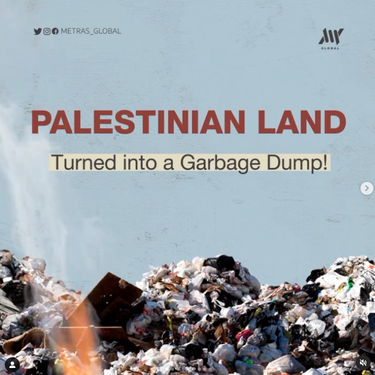
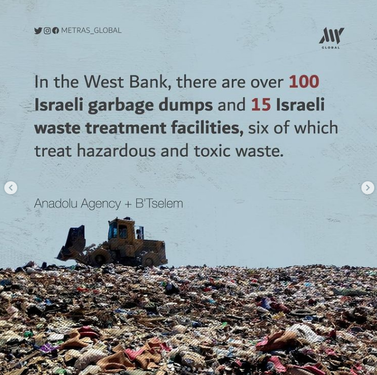
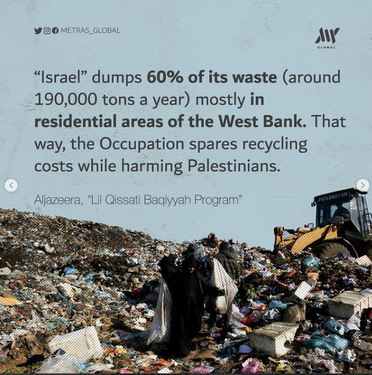
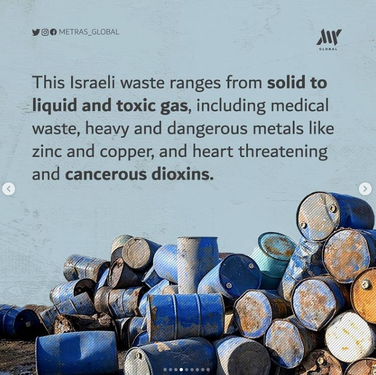
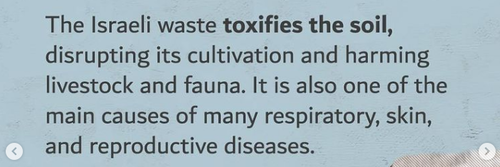
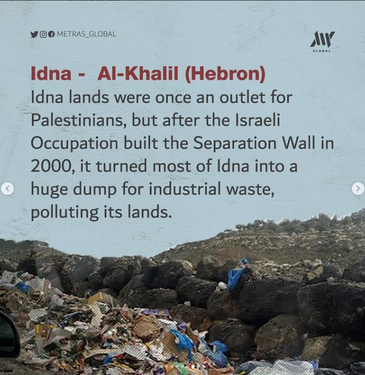
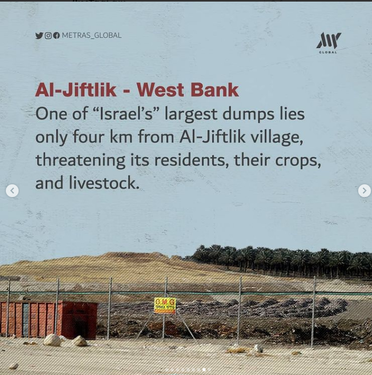
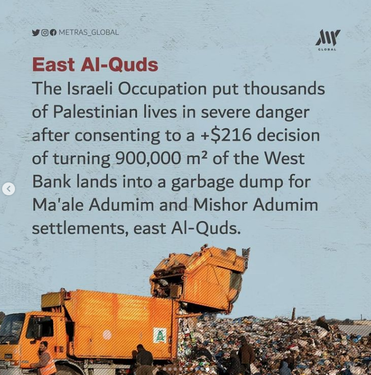
.thumb.png.db6affbd1ecd9feffdf36b205509ed6a.png)
